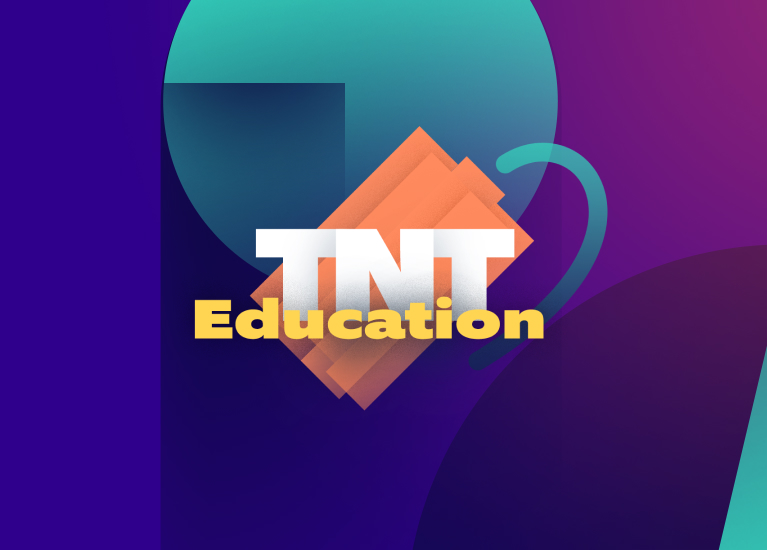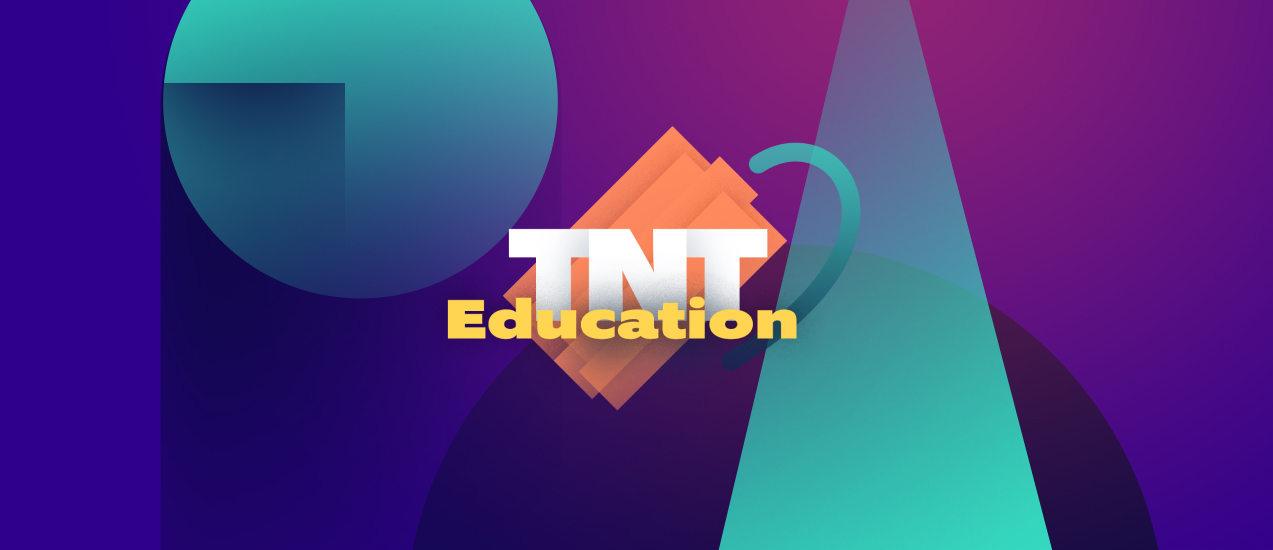Education is a pretty broad term and concept. A common denominator among all its definitions is about acquiring knowledge and skills. But learning is a lifelong exercise, with soft skills being an integral part of it. Why should you keep learning constantly, and how can you imbibe soft skills? That's precisely what we'll cover in the fourth edition of TNT (Think Nagarro Today) as we assess the importance of continuous learning and soft skills in our lives.
"Intellectual growth should commence at birth and cease only at death." - Albert Einstein
Our global marketing team colleagues – Alina Vicol and Julia Rettig – interviewed our experts: Iris-Sabine Bergmann, Mansi Gupta, and Manmohan Gupta.
Our experts:
 Mansi Gupta from India leads NagarroU, our internal learning & development function. She loves to read, and one book that has been the longest on her to-read pile is the Malazan series. Mansi loves Nagarro's culture and strongly believes in our CARING values.
Mansi Gupta from India leads NagarroU, our internal learning & development function. She loves to read, and one book that has been the longest on her to-read pile is the Malazan series. Mansi loves Nagarro's culture and strongly believes in our CARING values.
 Manmohan Gupta is based in the US, and apart from being the co-founder of Nagarro, he is also an avid Math teacher. When he isn't working on his to-read list or handing out his favorite book, The Power of Now, Manmohan enjoys teaching and having fun with his colleagues at Nagarro.
Manmohan Gupta is based in the US, and apart from being the co-founder of Nagarro, he is also an avid Math teacher. When he isn't working on his to-read list or handing out his favorite book, The Power of Now, Manmohan enjoys teaching and having fun with his colleagues at Nagarro.
 Iris-Sabine Bergmann from Austria keeps a copy of The Power of Now in her apartment to read it whenever she can. At Nagarro, Iris is an HR Lead, focusing on mentorship programs.
Iris-Sabine Bergmann from Austria keeps a copy of The Power of Now in her apartment to read it whenever she can. At Nagarro, Iris is an HR Lead, focusing on mentorship programs.
Our conversation with them discussed how technology and COVID-19 have impacted organizational education, how tech and soft skills differ, and why education at Nagarro is so culturally rooted. So, without any further ado, let's get started:
[Julia]: How would you define education, and why do you think it is so important?
[Manmohan]: We all know the bookish definition that you educate yourself to learn and build knowledge. With innovative technology and social media, education is everywhere. If you want to pursue engineering, all courses are free. Technology courses are affordable nowadays, and this has put pressure on everyone to learn. So, we need to prefix the term 'education' with 'continuous'. Because this is how education has shifted – it has become a lifelong quest.
Also, people generally confuse experience with knowledge. We assume that if one has spent 20 years in the industry, the person must be knowledgeable. This is wrong because it is merely the job experience. Knowledge comes from reading books.
[Mansi]: I completely agree. We constantly need to acquire knowledge if we want to stay relevant. Education is not about acquiring this knowledge. It's about building the right mindset where you have the willingness and the confidence to seek knowledge constantly. A sense of curiosity – constantly pushing yourself and everyone around you to acquire knowledge. We need to break the thinking that education has a finish line. Continuous learning is critical, and this is what drives success at Nagarro.
[Iris]: The world changes so rapidly. I don't think we will stick to the same job or even the same profile throughout our lives. Statistics show that people nowadays have at least five different roles. So this also makes it very relevant to always be on the learning path. It is not just skills and experience; it is also about how we communicate and organize.
[Manmohan]: And it is your responsibility to educate yourself, so that you can succeed in these five roles.
[Alina]: That's very true. What is your take on the balance required between soft skills and technical skills?
[Mansi]: The expectation is not to have depth in only one skill and forget everything else. While it is easy to evaluate technical skills, assessing soft skills can be challenging. The way you manage stakeholders or handle a complex situation is a soft skill. You need extensive peripheral knowledge to do well in your defined role.
[Iris]: I think that basic technical knowledge is like an entry ticket to a job. Social skills are more difficult to learn. So, it would be best if you were around seniors who have those skills to observe and learn what they are doing, how they communicate, how they facilitate, etc. It makes me a bit nervous that everybody is working from home now. Because now, it has become even more critical than ever to focus on teaching soft skills remotely.
[Mansi]: I loved what you said about soft skills being more challenging to acquire than technical skills. This needs serious intervention as we often see people who are excellent at their job, but that helps only up to a particular point. This is because they focus only on their core work area. But that will not help you grow to your next role. And I think mentoring programs can fill this gap – attaching people to role models from whom they can learn.
[Manmohan]: You also need to interact with different departments to get a broader perspective on writing business communication, managing teams, and understanding how various departments do this differently. It is about having the top technologists and making them leaders.
[Julia]: I think at Nagarro, we have a unique approach to this as a company, as an organization - because of our CARING values and our focus on entrepreneurship.
[Manmohan]: Yes, and I would say all the core values we have are soft skills. And at Nagarro, you must embody and acquire all these skills.
[Mansi]: Indeed! I have seen that at Nagarro, there are so many people who are excellent at their work. Thus, you are in a culture where you are raising standards for yourself and everyone around you. We are constantly increasing expertise, ensuring that we stay innovative and cutting edge. We get all the support we need from our peers, senior management, and internal heroes. So, we build a culture, and a new hire is part of this culture - you either sink or swim. We have many programs to help colleagues level up. We remove the roadblocks and guide you. This way, we create the frameworks, but eventually, you also need to take your steps.
[Manmohan]: I would like to add another important point. COVID-19 also facilitates our approach to learning. We have endless online possibilities in the New Normal, and people are taking them. We can host remote workshops spanning continents, having even more attendees than in an in-person event. So learning has changed as well.
[Alina]: When we talk about an entrepreneurial mindset, how important do you think role models are?
[Manmohan]: Role models are amongst the most essential factors in learning. I always looked for role models wherever I went, whether at university or in my job. I am a very analytical observer. The very first thing I learned was that making mistakes is the best way to learn because you can always grow – try a different approach the next time. So, role models are important because people get inspired and motivated. But you should not follow them blindly.
[Mansi]: I think having great role models also guides you into what you need to do to follow their path. This is especially important for youngsters because role models can inspire them. Take the good parts of your role model, but remain critical.
Awesome! Now, wasn't that a great conversation? In this wonderful discussion, we discovered the different aspects of education and learned why skills and knowledge are so important for any individual. We also realized why it is so important to provide mediums that facilitate continuous learning at an organizational level. However, the secret sauce to success lies in the right blend of tech skills, soft skills, and continuous learning. So, keep that learning curve going!
That's it for the fourth TNT edition but keep watching this space for the forthcoming TNT discussions, where we will dig deep into many other interesting topics and even more insightful conversations!





%20-%20Nagarro.png?width=83&height=83&name=MicrosoftTeams-image%20(11)%20-%20Nagarro.png)
